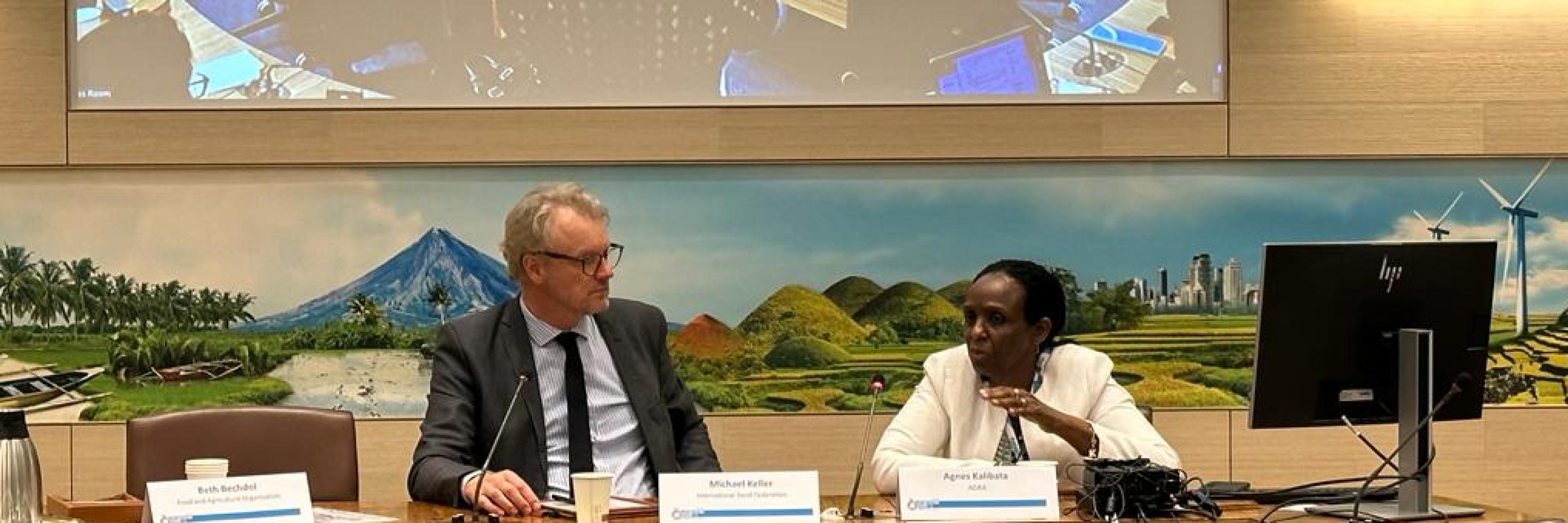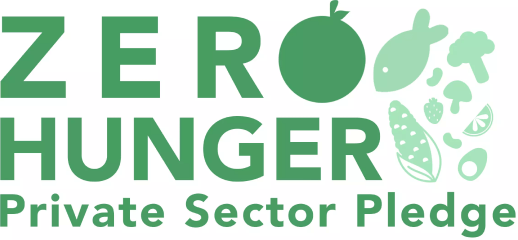
The Private Sector Pledge at the UNFSS+2
What is the role of the private sector in transforming our food systems to end hunger sustainably? A recent side event held during the UN Food System Summit Stocktaking Moment examined this question with a focus on the Zero Hunger Private Sector Pledge.
The Pledge was launched at the UN Food Systems Summit in 2021 to encourage companies to align their business investments with evidence-based solutions for the sustainable eradication of hunger. It provides companies the opportunity to commit investments targeting at least one of 90 priority countries and 10 intervention areas broadly focusing on:
Empowering the excluded: giving marginalized populations and small producers the resources to learn and benefit from successful agricultural interventions.
On the farm: encouraging agricultural interventions to support sustainable practices that are economically viable for farmers.
Food on the move: reducing post-harvest losses by assisting small-scale producers and SMEs across the value chain to increase their productivity and income.
These intervention areas have been identified as having the greatest impact in ending hunger according to the landmark Ceres2030: Sustainable Solutions to End Hunger project.
More than half a billion dollars pledged since 2021
Since its launch in 2021, the Pledge has mobilized nearly USD 560 million from 46 companies for investments in 47 priority countries.
During the UNFSS +2 Stocktaking Moment in July 2023, the Pledge co-organized a side-event, entitled Private Sector Ambition, Action & Accountability towards Food Systems Transformation, with the Private Sector Mechanism of the Committee on World Food Security (PSM-CFS), World Business Council for Sustainable Development (WBCSD) and AGRA. It reviewed the progress made since 2021 and announced new pledges made by companies.
The side event moderator, Michael Keller from the PSM-CFS, noted that “The private sector is about impact, it is about building win-win situations and it is about building sustainable business models that have a positive impact on the SDGs as well as decreasing hunger.”
A panelist during the side event, Gabriela Wurcel from the FMC Corporation, announced that the company was pledging USD 30.5 million to support small farmers across Asia, Africa and Latin America. She explained that companies have "the capacity and obligation to contribute in a concrete way. This is where the Private Sector Pledge comes into play because it helps us to make concrete commitments within a framework that ensures accountability."
For Diane Holdorf from WBCSD, tremendous progress has already been made but it is now necessary to measure performance. She highlighted that "the Zero Hunger Private Sector Pledge is so important because it brings in the aspects of nutritious and sufficient food and health which is not sufficiently addressed."
To measure performance and ensure accountability, the Pledge has begun its reporting process. Using the new reporting framework, all company pledges valued at USD 1 million or more will be verified to ensure that they have been converted into tangible investments. A first report will be published by the end of the year and will confirm the amounts spent to date and the countries of implementation.
A recording of the side event is available for view on YouTube. Other participants included Eija Hietavuo from TetraPak, Agnes Kalibata from AGRA and Leonardus Vergütz from OCP.
